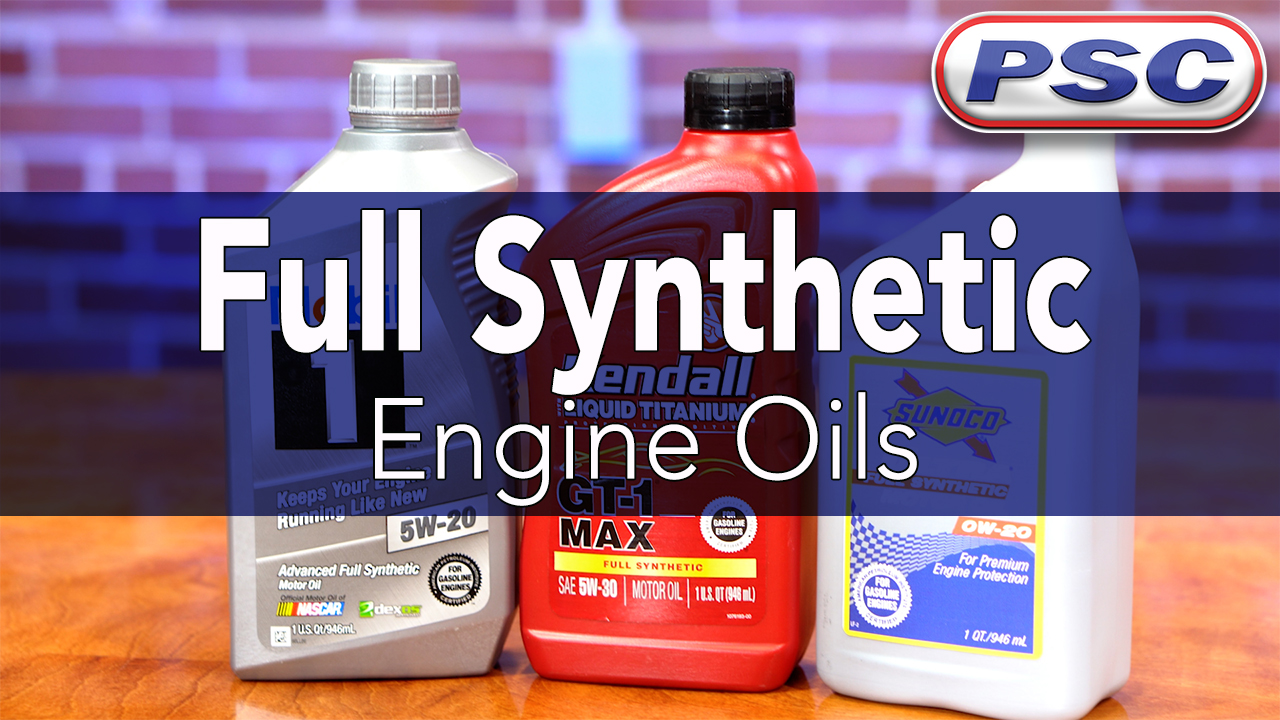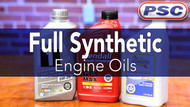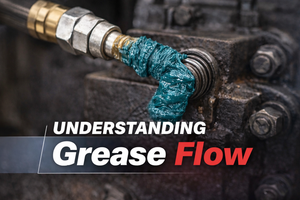Should You Use Full Synthetic Passenger Car Engine Oil?
By on Nov 04 2024

Is full synthetic engine oil worth the investment for your vehicle? With advanced protection, better performance, and longer intervals between oil changes, full synthetic oils offer numerous advantages over conventional oils. But is it right for your car, and when should you make the switch? This guide will break down the benefits, potential drawbacks, and help you decide if full synthetic oil is the ideal choice for your driving needs.
What is a Full Synthetic Engine Oil?
In the motor oil market, you're going to run into conventional oils, full synthetic —oils, and even semi-synthetics (which take the best of both worlds). To determine which one is right for your application, it's first important to understand the differences between conventional and synthetic.
Full synthetic engine oil is engineered from high-quality base oils and advanced additives, designed for superior performance and durability. Unlike conventional oils, which are derived from crude oil, full synthetics are chemically crafted for enhanced stability, better viscosity, and greater resistance to extreme temperatures. This means they perform exceptionally well in modern engines, providing optimal protection and efficiency. But how does this differ from synthetic blends? While blends combine synthetic and conventional oils for cost savings, full synthetics offer the highest level of performance.
The difference between synthetic and conventional oils is most notable on a molecular level (but don't worry you don't need to understand chemistry here). When it comes to mineral oil, the molecules are all different sizes and there is a lot of variation. For synthetics, these molecules are all the same size. It's like having a jar of rocks and a jar of marbles, the rocks are going to all be naturally different, whereas the marbles are uniformly made.
Did you know that sometimes a synthetic oil isn't actually synthetic at all, but might just be a highly refined mineral oil? Read more about synthetic oils and the — synthetic misnomer — here.
Benefits of Synthetic Oils
-
Extended Engine Life: Full synthetic oils reduce friction and wear, providing better protection for vital engine parts, particularly under harsh conditions. For high-mileage and performance-oriented vehicles, this means a longer-lasting engine and fewer maintenance costs.
-
Improved Fuel Economy: The advanced formula of full synthetics lowers engine drag, helping your car perform more efficiently and extending your MPG. This can result in noticeable fuel savings, especially for drivers who frequently face stop-and-go traffic.
-
Temperature Resistance: Synthetic oils maintain their stability across a wide temperature range, ensuring your engine performs optimally whether you're driving in extreme cold or heat. Conventional oils often break down under such conditions, compromising engine protection.
-
Longer Oil Change Intervals: Due to their superior stability, full synthetic oils last longer than conventional oils, meaning fewer oil changes per year and lower maintenance costs over time.
Synthetic Oil Drawbacks
While full synthetic oils offer benefits, there are a few things to keep in mind when choosing your oil, including:
-
Higher Cost: Full synthetics generally cost more than conventional oils. However, the longer intervals between changes and enhanced protection can offset this initial cost, making it a valuable investment for drivers looking for long-term engine health.
-
Compatibility with Older Engines: Some older engines may not be ideal for full synthetic oils, as these oils could expose pre-existing leaks or interact differently with certain seals. If you’re considering switching, it’s wise to check your vehicle’s manufacturer recommendations or consult a mechanic.
When To Use Full Synthetic Oil?
-
High-Performance Vehicles: If you drive a high-performance or turbocharged vehicle, synthetic oils provide the protection needed for high-stress environments.
-
Extreme Temperatures: Synthetic oil’s resistance to breakdown makes it perfect for regions with very hot summers or cold winters, ensuring your car is well-protected regardless of the season.
-
Busy Drivers: Those with long commutes or frequent short trips benefit from synthetic oils, as they maintain consistent protection even with stop-and-go traffic or prolonged idling.
Comparing: Full Synthetic vs. Synthetic Blend vs. Conventional Oil
| Oil Type | Best For | Performance Highlights | Costs |
|---|---|---|---|
| Full Synthetic | High-performance and high-mileage vehicles | Superior wear protection, fuel efficiency | Higher |
| Synthetic Blend | Budget-conscious drivers | Moderate protection and durability | Mid-range |
| Conventional | Older, low-mileage cars | Basic protection | Lower |
Frequently Asked Questions (FAQ):
Q: Can I switch between synthetic and conventional oil?
A: Yes, it’s possible to switch between them, although it’s best to follow your vehicle’s manufacturer
recommendations. If your car is older, consult a mechanic before making a switch.
Q: Is synthetic oil worth the extra cost?
A: In most cases, yes—especially if you want longer intervals between changes and better protection. For
frequent
drivers or those in extreme climates, the investment often pays off.
Q: How often should I change synthetic oil?
A: Many full synthetic oils are rated for up to 10,000 miles between changes, but always check your vehicle’s
maintenance guide for specifics.
Full synthetic oils offer an unbeatable combination of performance, protection, and longevity for today’s engines. While they may cost more upfront, the investment often translates into a healthier engine, fewer oil changes, and peace of mind on the road. Ready to explore full synthetic oils? Check out our range of high-quality options available in cases up to 55 gallon drums and see the difference for yourself.






